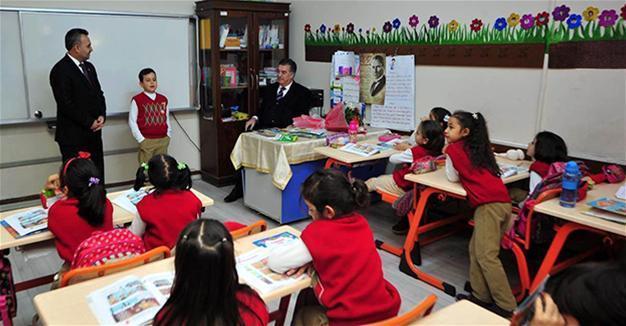Over 130,000 public reviews pour in for Turkey’s controversial draft education curriculum
Esra Ülkar – ANKARA

DHA photo
Over 130,000 reviews have been made from the public for the Education Ministry’s new education curriculum draft, which was opened to revisions and contributions after its announcement on Jan. 13.
The draft, which was announced on the ministry’s website, has so far attracted 138,412 reviews in which people shared their opinions about the content of the lessons to be taught at all grades from elementary school to high school level. The reviews were accepted through the official website system as well as through the mail and social media.
To evaluate the reviews, the ministry has set up 37 commissions with 130 members consisting of academics, education experts and class teachers. For the 11 elementary school classes there are a total of 20,371 reviews, with most concerning the Turkish language classes. For the 14 middle school classes this number was 28,298, with changes to the Kemalism classes receiving most revision suggestions. For the 25 high school classes, 57,610 opinions were shared, with history classes having the most reviews.
The new draft curriculum has drawn harsh criticisms for its suggested coverage of a number of key topics for Turkish students, with classes on history, life sciences, Kemalism and positive sciences at the heart of the debates.
A major debate was stirred over the fact that Mustafa Kemal Atatürk, the founding father of the modern Turkish Republic, was to be covered at elementary school grade solely based on his birth place, family members, death place and his mausoleum, as well as minor information about his childhood and personality, without touching on his role in World War I, the Turkish War of Independence, and his republican-era reforms.
In science, many have expressed concern about the lessened significance of evolutionary theory in biology coverage.
